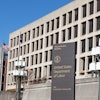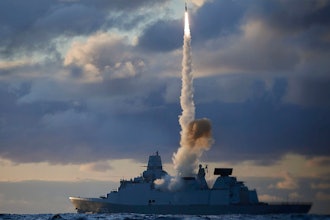When it comes to biologics manufacturing, the place to be is Singapore—the country has seen nearly $1 billion in four biologic investments in less than two years.
“Of all the approved drugs in the United States in 2006, approximately 30 percent are biologic drugs,” said Yeoh Keat Chuan, Executive Director, Biomedical Sciences Group, Singapore Economic Development Board.
Unlike pharmaceutical medicines that are chemically synthesized, biologics manufacturing involves making protein-based drugs (i.e. vaccines, hormones and insulin) by culturing living cells.
In June 2000, Singapore was just coming out of an economic recession. To boost the economy, the government invested in high value-added, knowledge intensive areas, and one of those was the Biomedical Sciences initiative.
Current investments include:
• A $250 million February 2006 joint venture between Lonza Group and Singapore’s Bio*One Capital for the country’s first commercial-scale biologics manufacturing facility
• A $350 million December 2006 Lonza/Bio*One joint venture for a large-scale mammalian cell culture plant
• A $140 million March 2007 investment from Genentech for a commercial scale microbial-based biologics manufacturing facility and
• A $300 million over four years planned investment from GlaxoSmithKline (GSK) for the production of pediatric vaccines, which brings GSK’s total investment in Singapore to over $0.9 billion.
• A $250 million February 2006 joint venture between Lonza Group and Singapore’s Bio*One Capital for the country’s first commercial-scale biologics manufacturing facility
• A $350 million December 2006 Lonza/Bio*One joint venture for a large-scale mammalian cell culture plant
• A $140 million March 2007 investment from Genentech for a commercial scale microbial-based biologics manufacturing facility and
• A $300 million over four years planned investment from GlaxoSmithKline (GSK) for the production of pediatric vaccines, which brings GSK’s total investment in Singapore to over $0.9 billion.
Additionally, Eli Lilly, GSK and Novartis have set up corporate research laboratories in the country.
Dr. Stephan Kutzer, Head of Lonza Biopharmaceutical, said the company “had decided to build its presence in the Asian market early to support our growing life sciences customer base.”
“As part of several possible sites, Singapore was selected due to its committed workforce, excellent education system, competitive cost position and strong intellectual property protection laws,” he added. “It is also a geographically strategic location, which adds to Lonza’s existing infrastructure.”
Patrick Y. Yang, Ph.D., Executive Vice President, Product Operations for Genentech, echoes Dr. Kutzer’s reasoning, adding Singapore has “a supportive business environment with reliable and transparent government agencies.”
So how does Singapore attract huge investments over its neighbors? Unlike China, Singapore has strong intellectual property protection and regulatory infrastructure. It has also built a highly skilled labor pool—about 3,500 university graduates and 3,000 technicians are trained in life sciences annually—through a series of government initiatives.
One such initiative is the Economic Development Board’s partnership program that sends new graduates to companies like Lonza for on-the-job training for a period of up to 24 months. Lonza currently has 70 graduates in training at its facilities in Slough, UK, and Portsmouth, N.H.
“The intent of this initiative is to develop a ready pool of talent with the relevant working experience. To date, we have sent approximately 250 trainees to our training partners’ facilities,” said Yeoh.
Yeoh adds that there are specific training courses, such as the bioprocess internship program at the Bioprocessing Technology Institute, that provide training with expression engineering, cell culture, analytical techniques and Good Manufacturing Practices.
To facilitate plant startups, Singapore offers two main location options, the Biopolis and the Tuas Biomedical Park (TBP).
“International pharmaceutical and biotechnology companies, promising local start-ups and contract research service providers co-exist and collaborate with each other, as well as with the seven public R&D institutions at Biopolis, a purpose-built campus for biomedical sciences research,” said Yeoh.
The TBP was designed for biologics and pharmaceutical manufacturing. It covers more than 370 hectares of land and members include Abbott, Ciba Vision, Genentech, GSK Biologicals, Lonza, Merck Sharp & Dohme, Novartis, Pfizer, Wyeth Nutritionals and Wyeth Pharmaceuticals.
“TBP had been developed as a ‘plug and play’ environment for manufacturing operations, providing ready access to essential infrastructure such as roads, drainage systems, power and water supply, as well as telecommunication lines,” Yeoh said.
Taking R&D a step further, the country provides advantages for each stage of operations.
“For companies looking to Singapore for biologics manufacturing outsourcing solutions, we have developed a continuum of services in Singapore to support companies in the entire range of activities from bioprocess research, pilot-scale manufacturing to commercial-scale manufacturing,” noted Yeoh.
Given the strong governmental push behind the biomedical sciences sector, it is not surprising that the industry is thriving, with fixed asset investment commitments reaching $586.6 million. For 2006, manufacturing output in the sector rose to $15 billion, a 30.2 percent increase over 2005.
Biomedical Sciences is expected to see a strong future in Singapore, as it is forecast to see $16.3 billion in manufacturing output and create 15,000 jobs by 2015.
“For the next phase of the Biomedical Sciences initiative (2006-2010), we will focus on building up capabilities in translational medicine and clinical sciences to bring discoveries from the lab to the clinic,” Yeoh added.






















